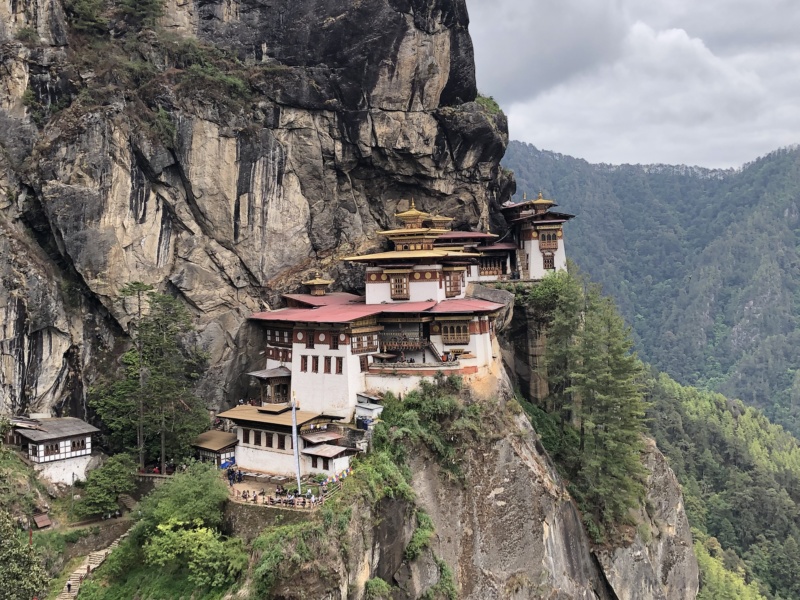Beautiful and calm,
a shangri-la unbounded.
Undeserved but loved
I was only halfway there. Looking up at the Paro Taktsang monastery precariously balanced on the side of the sheer cliff face, it was hard not to be impressed. How deliberately it perched, hovering over the valley below, gilded by the rays of sunlight darting through the cloud cover. I dabbed at the beads of sweat trickling across my brow and down my cheeks, and I inhaled deeply. My lungs yearned for the denser air of lower altitudes and my legs trembled in silent suffering from the steep incline of the journey so far. I paused for a while. Teapea, my Bhutanese guide, handed me a bottle of water which I gulped from gratefully. It was my final day in Bhutan and as I paused in the unforgiving midday sun, looking up at what was to be the culmination of all that I had seen of the Bhutanese way of life, I felt a pointed twang. For the first time on this climb, it was not a physical twang, but instead, it was of the conscience. It had been building up over the past four days and finally, it had gnawed and wriggled its way to the forefront of my mind. I realised that I was undeserving.
Bhutan is arguably the last (or maybe the first) bastion of a harmonious ideology. An intertwining of nature and humanity that is built on the foundation that these two weighty forces should co-exist and that due credence should be given to the notion that one of these forces existed far before the other and should, by its own rights, exist long after. The soil of the earth, the water of the ocean, and the winds of the sky are gifts to help humanity to live deliberately and they are not there to be exploited or abused. Conservationism is enshrined. Bhutan prides itself on the pursuit of happiness and the belief that a fulfilled life is a happy one. Never has a philosophy been so at ends with a Western way of life. It’s true that people all over the world prefer to be happy than not, but the way we measure our happiness through the “keeping up with the Joneses” scale seems so flimsy in comparison to the absolute happiness that the Bhutanese population pursues. You can be happy with the knowledge that your inherent existence means you are part of something truly remarkable and not because you have the newest iPhone.
It was disarming. Suddenly, I felt like my presence alone was disturbing a finely tuned equilibrium, that “westernisms” were escaping my pores and blemishing a carefully cultivated ideal. Was I a voyeur; an unwelcome guest? Perhaps my desire to experience a unique way of life had only further removed myself from it. Perhaps not. Maybe an introspective detox is necessary to reach your destination. In much the same way that each step of the climb had been punishing, so too had the turning gears of my introspection been as well. Yet, with each step, I could see my destination that much clearer and with every self-realisation, I hoped that I would be inching closer to a higher ideal, to a more complete and accepting being and ultimately a happier life. I hoped, but I knew I was only halfway there.
